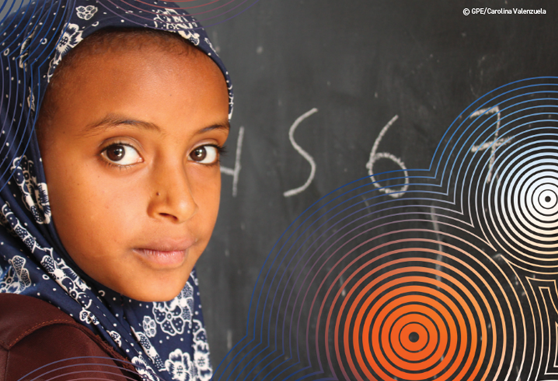
Interview: The uniqueness of Education Out Loud
Achieving good quality in education and ensuring access also to marginalized groups has proven to be a challenge in the strive to secure education for all. EOL is set up to support CSO’s who can mobilize communities and provide innovative solutions to meet these challenges. Global Programme Manager Lars Udsholt encourages also “less typical” CSO’s to apply for the grant that has just opened for next round of calls.
“For good reasons most practitioners within education have previously been concerned with the lack of schools and trained teachers. And over the past decades, impressive improvements in access to education has been achieved: many more children go to school. But when we ask two questions – who are still not in school and who are in school without learning enough – the inequality is obvious. And it becomes clear also that there is a need to suggest solutions as well as mobilize political will to address the inequalities we see,” states Lars Udsholt.
The fund
- holds a total of 55 million dollars and is divided into three main areas
- support for national education coalitions in 54 countries to bring together national CSO working on education
- support for transnational advocacy to join efforts and agendas across the local-national-international spectrum
- support for social accountability linking local and national efforts Focus is on 60+ poor countries of which many are also affected by fragility.
Together with a team of four colleagues in Oxfam Denmark and 17 colleagues in Oxfam offices in Ghana, Mexico, Nepal and Uganda he is managing the new fund on advocacy for education that has been set up as part of Global Partnership for Education and holds a total of plus 55 million dollars.
We need to be loud
The name of the fund is Education Out Loud with special emphasize on the “loud”.
“We need to talk about how access and quality of education should improve. We need to shout out loud and make sure it receives public and political attention,” says Lars Udsholt and expresses the purpose of the fund as one that essentially offers a voice to people who has hands on experience with inequality and holds solutions to the problems they see.
“We want to listen to and amplify the voices of those working close to marginalized groups and societies. To support them in trying out new approaches and solutions to combat inequality in education. There are no easy fixes, so the aim is to develop a variety of methods and test what works under what circumstances,” says Lars Udsholt.
Not only the ususal suspects
Education Out Loud grants are intended for established CSO’s with proven capacity in managing projects, but Lars Udsholt stresses that he would still love to see applications from other than “the usual suspects”.
“People who are hearing about the grant may think that we are looking only for partners who have solid experience within education. That is not the case. More emphasis will be put on the applicants track record when comes to mobilizing communities, being innovative in addressing inequality or holding authorities to account. We strongly encourage partners from other sectors to use this experience and use the cooperation with Education Out Loud to transfer this knowledge into education,” says Lars Udsholt.
He also stresses that even though the lead applicant should be an existing and well establish CSO, he is keen to see many of these linking up with less formal organizations or groups with presence at grass root levels. Groups who has a desire to solve the inequalities they meet and can provide new ideas and solutions.
“Education Out Loud can be seen as a hub to develop and test new means to fight inequality in education. We support each grantee to undertake their specific project but also enables them to share their experience and learn from others,” says Lars Udsholt.
In five years EOL will have contributed to:
• CSO’s and community groups around the world, that are continuously able to speak up and participate in debates and political discussions on education.
• Increased access for marginalized groups and overall increased quality in education
• Methodologies and tested experience shared and picked up by others that are working to address inequality in education.
